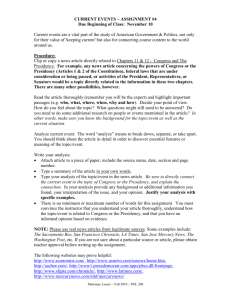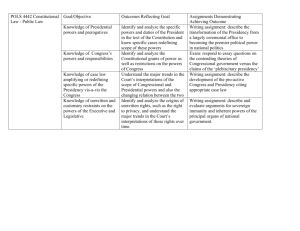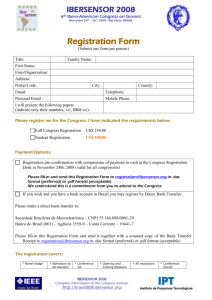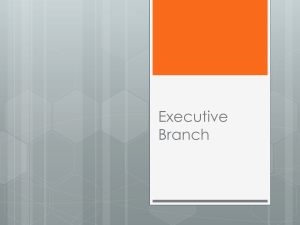WEEK SHEET-8
advertisement
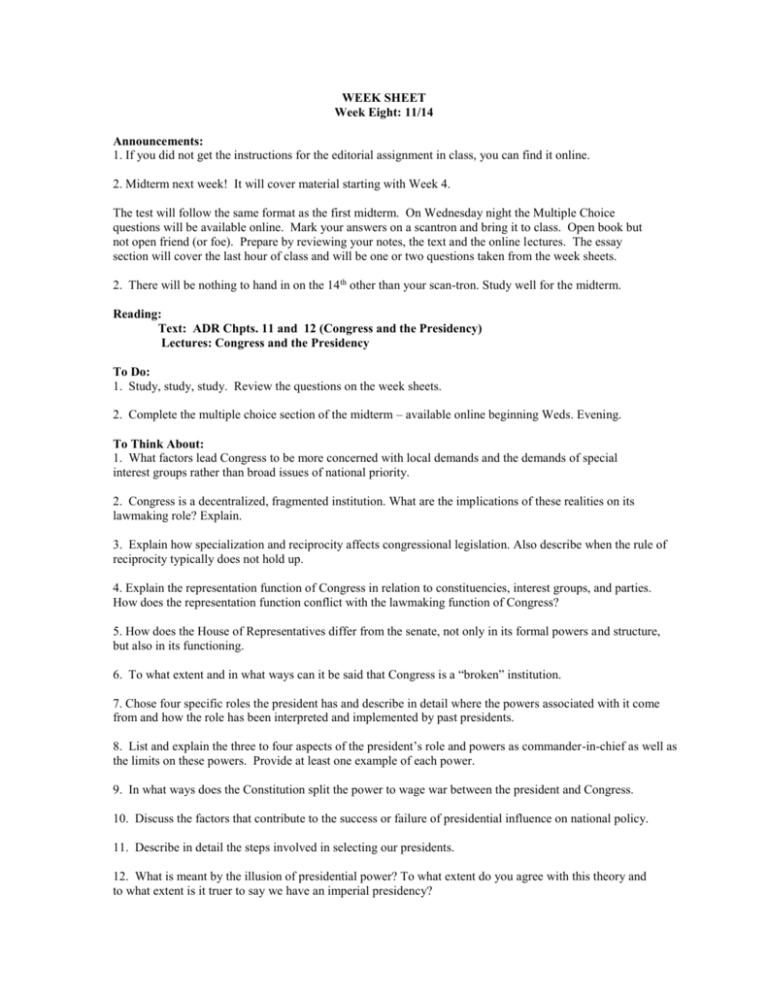
WEEK SHEET Week Eight: 11/14 Announcements: 1. If you did not get the instructions for the editorial assignment in class, you can find it online. 2. Midterm next week! It will cover material starting with Week 4. The test will follow the same format as the first midterm. On Wednesday night the Multiple Choice questions will be available online. Mark your answers on a scantron and bring it to class. Open book but not open friend (or foe). Prepare by reviewing your notes, the text and the online lectures. The essay section will cover the last hour of class and will be one or two questions taken from the week sheets. 2. There will be nothing to hand in on the 14 th other than your scan-tron. Study well for the midterm. Reading: Text: ADR Chpts. 11 and 12 (Congress and the Presidency) Lectures: Congress and the Presidency To Do: 1. Study, study, study. Review the questions on the week sheets. 2. Complete the multiple choice section of the midterm – available online beginning Weds. Evening. To Think About: 1. What factors lead Congress to be more concerned with local demands and the demands of special interest groups rather than broad issues of national priority. 2. Congress is a decentralized, fragmented institution. What are the implications of these realities on its lawmaking role? Explain. 3. Explain how specialization and reciprocity affects congressional legislation. Also describe when the rule of reciprocity typically does not hold up. 4. Explain the representation function of Congress in relation to constituencies, interest groups, and parties. How does the representation function conflict with the lawmaking function of Congress? 5. How does the House of Representatives differ from the senate, not only in its formal powers and structure, but also in its functioning. 6. To what extent and in what ways can it be said that Congress is a “broken” institution. 7. Chose four specific roles the president has and describe in detail where the powers associated with it come from and how the role has been interpreted and implemented by past presidents. 8. List and explain the three to four aspects of the president’s role and powers as commander-in-chief as well as the limits on these powers. Provide at least one example of each power. 9. In what ways does the Constitution split the power to wage war between the president and Congress. 10. Discuss the factors that contribute to the success or failure of presidential influence on national policy. 11. Describe in detail the steps involved in selecting our presidents. 12. What is meant by the illusion of presidential power? To what extent do you agree with this theory and to what extent is it truer to say we have an imperial presidency?



